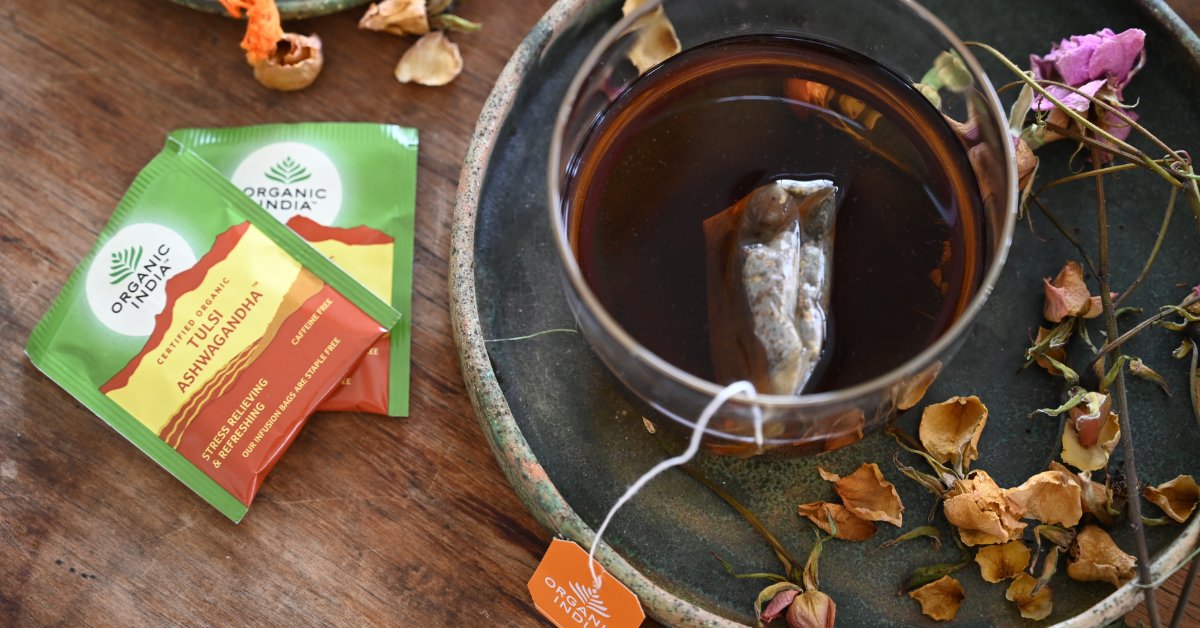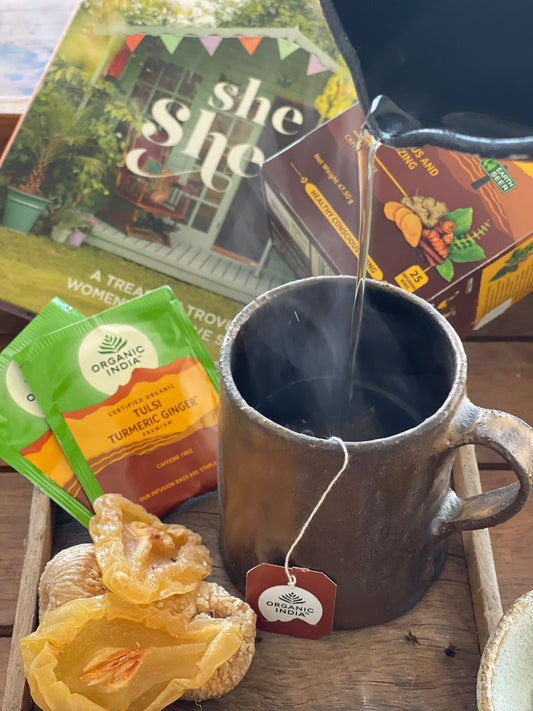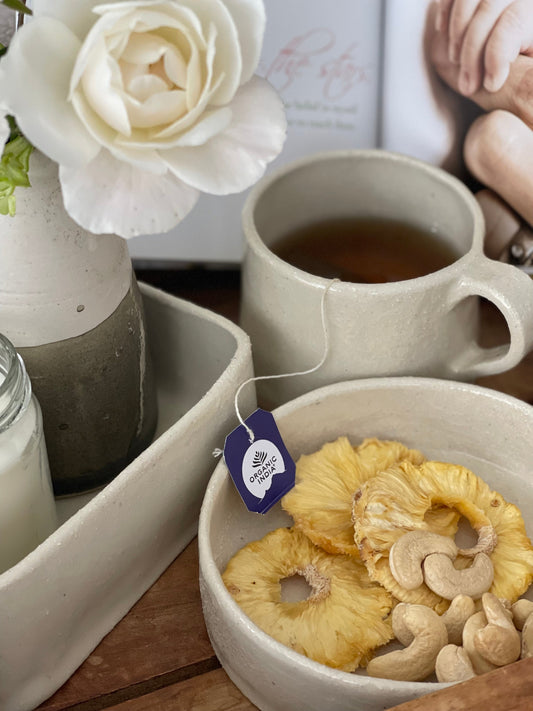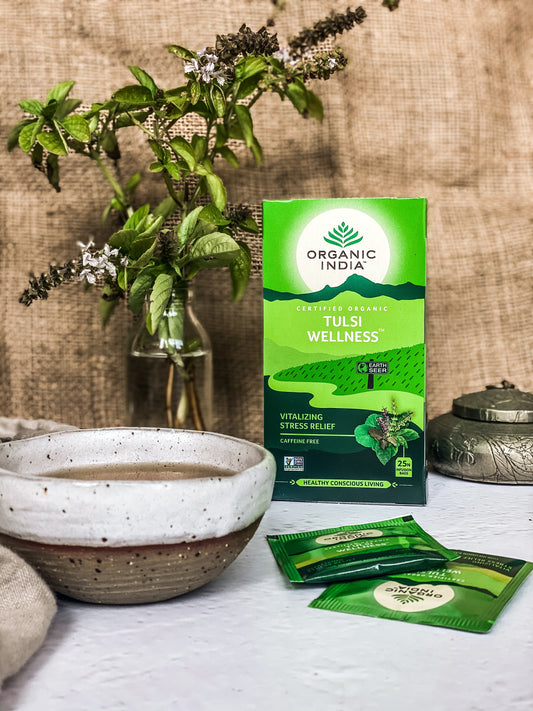There’s no doubt about it, a great night’s sleep is beyond amazing: it allows us to feel clear, bright-eyed and capable of tackling whatever comes our way. Did you know, that sleep is also super important for immunity, and that sleep deprivation can seriously compromise your immune system?
Sleep struggles are common and often result from a lack of routine, or a routine that is peppered with a few unsupportive habits. Many of us can turn our sleep issues around (and in turn, our immunity) with a few simple hacks;
Create a Supportive Daily Routine
Our bodies thrive when given routine. As famous Ayurvedic Practitioner, Dr Svoboda says: ‘The human organism loves routine and thrives when it is fed, exercised and rested regularly.’ It might sound simple, but creating a supportive daily routine and sticking to it will produce noticeable differences to your digestion, sleep quality and energy levels. Try the following:
– Getting up and going to bed at similar times every day (see more on this below)
– Eating at the same time each day
– Rising with the sun throughout the year
– Exercising daily
Designate ‘Switch Off’ Time
Stress accumulates throughout the course of the day: the sense of not having enough time, being over-scheduled or struggling with tasks through a lockdown-induced haze. It’s easy to take this swirling sense of stress to bed and struggle to get to sleep. Stress management is key not only for our sleep quality but to support our immune system which can be suppressed by stress hormones.
A great stress management tool is to designate a ‘switch off’ time each day to put a clear end to the working day and signal the start of relaxation time. You could try:
– A walk around the block or park. Whilst walking focus on your breathing and the scenery around you
– A short (or longer!) yoga routine to transition from being more active mentally to being more grounded and body-aware.
– Play a favourite song and sing it loudly or even try dancing it out!
– Trying one of our favourite restorative yoga poses: Legs up the Wall, for
15 minutes to promote the switch from sympathetic nervous system (fight or flight) to parasympathetic nervous system (rest and relax).
Dinner Time
What we eat for dinner and when we eat it can really affect our quality of sleep. Try the following and see how it helps:
– Make sure you don’t overeat. Aim to fill your stomach with 1⁄2 food, 1⁄4
liquid and leave 1⁄4 empty (to allow for digestion). Try to eat your main
meal at lunchtime when your digestion is strongest.
– Give yourself time to digest your food before bed as sleeping with a full
stomach tends to impair digestion.
– Add herbs and mild spices to your cooking to aid the digestion of your
food.
Tulsi Sleep Tea
As a lovely part of your evening routine try drinking a cup of Tulsi Sleep tea an hour before bed (use a small mug rather than a large one to avoid any nighttime bathroom visits). If you’re really struggling with insomnia, try having one cup late in the afternoon and drink a second cup the hour before bed.
Tulsi Sleep is a delicious Ayurvedic blend of herbal tea that works to soothe restlessness and facilitate nighttime relaxation to promote a calm and restful sleep.
– Tulsi, Ashwagandha, Gotu Kola and Shankpushpi are known to calm the mind and nervous system, help with anxiety, insomnia and stress.
– The combination of adaptogenic herbs enhances your ability to maintain balance amidst everyday stressors and gently builds stress resilience to support peaceful sleep.
– Cardamom and peppermint are well known digestives, helping to reduce digestive discomfort and provide relief from indigestion.
– Chamomile is traditionally used to support digestion and promote sleep.
Calming Foot Massage
Massaging your feet with warm oil before bed can help you fall asleep, especially if you’re feeling restless. There are numerous benefits including; it will calm Vata, reduce anxiety and stress, release muscle tension, promote deeper sleep, better digestion and give you lovely soft feet. Here’s how to do it:
– Use a specific foot massage oil, or sesame (if you run cold at night), coconut (if you run hot at night) or ghee. Gently warm it up for extra goodness in an oil burner or on the stove.
– Rub on a small amount of oil, coating ankles and feet and massage in circular motion around the joints and long the bones in a linear motion.
– Massage the soles and heels, pinch and massage each toe.
– When you’re finished, pull on some old socks to stop oil from spoiling your bedding
Bedtime!
Aim to fall asleep by 10pm so you are still in Kapha time, the most conducive time for getting to sleep and staying asleep. Here’s why according to Ayurveda…
Ayurveda breaks the day up into 6 x 4 hour zones, one day zone and one night zone for each of the three doshas. To improve your health, it is best to keep your daily routines set to this Ayurvedic clock. Our nighttime looks like this:
– 6pm – 10pm is Kapha time. Kapha promotes slowness, stability and heaviness, beautifully supporting us to fall asleep more easily and deeply.
– 10pm – 2am is Pitta time. After about 10pm the energy and fire of Pitta promotes the digestion of the day’s experiences, emotions and any remaining food – this explains the ‘second wind’ that can prevent you from falling asleep.
– 2am – 6am is Vata time. From about 2am we start to prepare ourselves for movement and waking as Vata is characterised with lightness, subtleness and more movement.
So here it is, a simple and natural way to reinforce your immune strength; give your routine a little shake up and address those sleep issues. May deep, rejuvenating sleep bring a new immune resilience your way!












